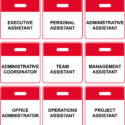
Sarah Kerrigan gives us her top tips on planning a career break
Taking a career break is easier than you might think and once you’ve set your mind to it, the process is a simple but meticulous matter of saving and planning, with a clear end goal in sight.
I took the time out to go travelling – you too could travel, or spend time with family, study and requalify for an alternative career, relocate, write a book – the possibilities are endless!
So, without further ado, I’ll talk you through some of the steps you need to take to set the ball rolling.
Leaving your job
You might be more than a little bit afraid to leave your job. After all, leaving a stable, regular income can be scary and a big risk to take. Only you can make the call – but I’ve done it twice now and never looked back (and I plan to do it again)!
The first time I took a career break was to go travelling for a seven-month trip around the world. I left my job (which I loved), but I wanted to travel more than I wanted to stay in that role, or with that company. I asked for a sabbatical, but they were unable to keep my job open for me, so I decided to resign and look for a new job when I returned.
Having budgeted enough money to pay for the whole trip, and some money to support myself during my job search when I got back home, I was no worse off financially – and I ultimately ended up in a better paying job, so the risk paid off.
Excuses
If you’re thinking about taking a career break, bear in mind that it’s never going to be the perfect time and you’ll always find an excuse not to do it – perhaps you’ve got family commitments, or there’s a promotion you were about to be put forward for. But if it’s something you have always wanted to do, make it happen sooner rather than later – I promise you won’t regret it! In my case, I have never heard anyone say, “I really regret taking that time out to travel…”
Taking a sabbatical
Depending on the Human Resources policies of the company you work for, it is worth asking your line manager if it’s possible to take an unpaid sabbatical as, unless you’re desperate to leave your job, a sabbatical would give you the peace of mind that you have a job to return to when you come back. Many companies offer this perk as an incentive for long service.
My advice on asking your boss for a sabbatical would be to have a hypothetical conversation with him or her. Try not to make it sound like a threat (“if you don’t give me a sabbatical I’m leaving anyway!”) and ask, “if I were to consider taking some time out, would it be possible for the company to offer me unpaid leave?”
If a sabbatical is not possible (which it wasn’t in my case – for either trip), at least you’ve explored that option and know where you stand. Leave on good terms and you can apply for any suitable open positions at the same company when you return or use your departure as an excuse to go for a job with more money or increased responsibility with a new organisation.
Saving up
Saving up is an essential part of the planning process, but don’t think you need to be earning big bucks to make a career break a reality. Give yourself time to save regularly and you will slowly get there – this may seem obvious or patronising but saving requires serious discipline! Use the end goal as fire in your belly to motivate you to save for your upcoming time off and you may be surprised at how much you can put away when you really put your mind to it.
When you get back from your time out, you’ll need to quickly re-establish a routine, whether old and familiar, or a new start – it’s up to you! My best advice is to factor into your budget a few months’ expenditure to allow yourself to settle back into work. This will give you time to find the right role, whilst ensuring the bills can be paid and to cover any unforeseen expenses that may arise. I tend to budget for an additional three months in savings, which is usually ample, but you may choose to save more or less, depending on your circumstances.
A month before my planned return to work, I updated my CV and LinkedIn profile and started contacting recruitment agencies and potential employers, so I could start lining up interviews as soon as I got back. This really enabled me to hit the ground running, maximise my time in terms of job hunting and my savings in terms of how long I needed to live off them.
The need for discretion
So, you’ve decided to start planning your career break, but your departure could be anything from a few months to a few years away. Even when you’re counting down the final six months, the chances are that your notice period in your job is one to three months, so you don’t want to tell anyone too soon – your employer might not take too kindly to the fact you’re planning on leaving and you don’t want to be overlooked for promotion in the meantime – so, be discreet about who you tell.
It killed me to keep my trips such a secret – I considered my colleagues to be my friends and I was dying to share my excitement with them, but I was also saving up over a long timeframe so even though I knew I would eventually travel, I didn’t tell anyone until I handed in my one month’s notice.
After completing my first round the world trip, I remember coming home and looking for a new job. In the interviews, I was asked about my travels and I talked about how much I enjoyed them – but I also said that ultimately, I was ready to settle down and focus on my career now. This was true in part, but I also couldn’t wait to start saving up to do it all again! Long-term travel had awakened in me a desire to travel more, not less – but I had to play it down. After all, I can hardly go into an interview, or start a new job saying, “by the way I might leave in five years to travel again” – even if it is true!
So, by all means, tell your family and dearest friends – they can help keep your saving on track and keep you motivated – but watch out for letting too much slip to the wrong people.
Dealing with the gap on your CV
I’ve never had a problem explaining the gap on my CV when I’ve taken time out to travel. If anything, it’s a point of interest and certainly not a negative. I took some advice from an HR professional who advised that it was best to explain any gaps of six months or more – as recruiters are only going to ask the question anyway. I have chosen to put in a line to explain my two seven-month travel gaps and recruiters have never taken issue with my taking a career break. If anything, recruiters, employers, and colleagues alike have often been envious of my adventures!
There’s certainly nothing to be ashamed of if you take some time out, and you should never feel the need to apologise to any recruiter for doing so. It demonstrates your proactive nature and your desire to broaden your horizons, to make changes and realise your ambitions – which are attractive attributes for an employee in any organisation.
Your experience – whilst not acquired through employment – is still an added layer of skills and knowledge that can work in your favour, so think about how you can bring the benefits of your time out to your new role. In the case of long-term travel: communication and negotiation skills; being able to self-motivate and work independently; the ability to be flexible and improvise; complex travel and logistics planning are all skills you will utilise.
Conclusion
Taking some time out permitted me to expand my horizons, to take stock and refocus, to evaluate what I want from my career and tailor my job search to my situation and future wants. When we’ve been in a job for a few years, how many of us really take the opportunity to step back and re-evaluate where we’re going and what we want from our careers?
My career break really opened my eyes to this and it’s hard to get this kind of perspective without stepping out of the rat race. I hope this article can help you to do the same.












